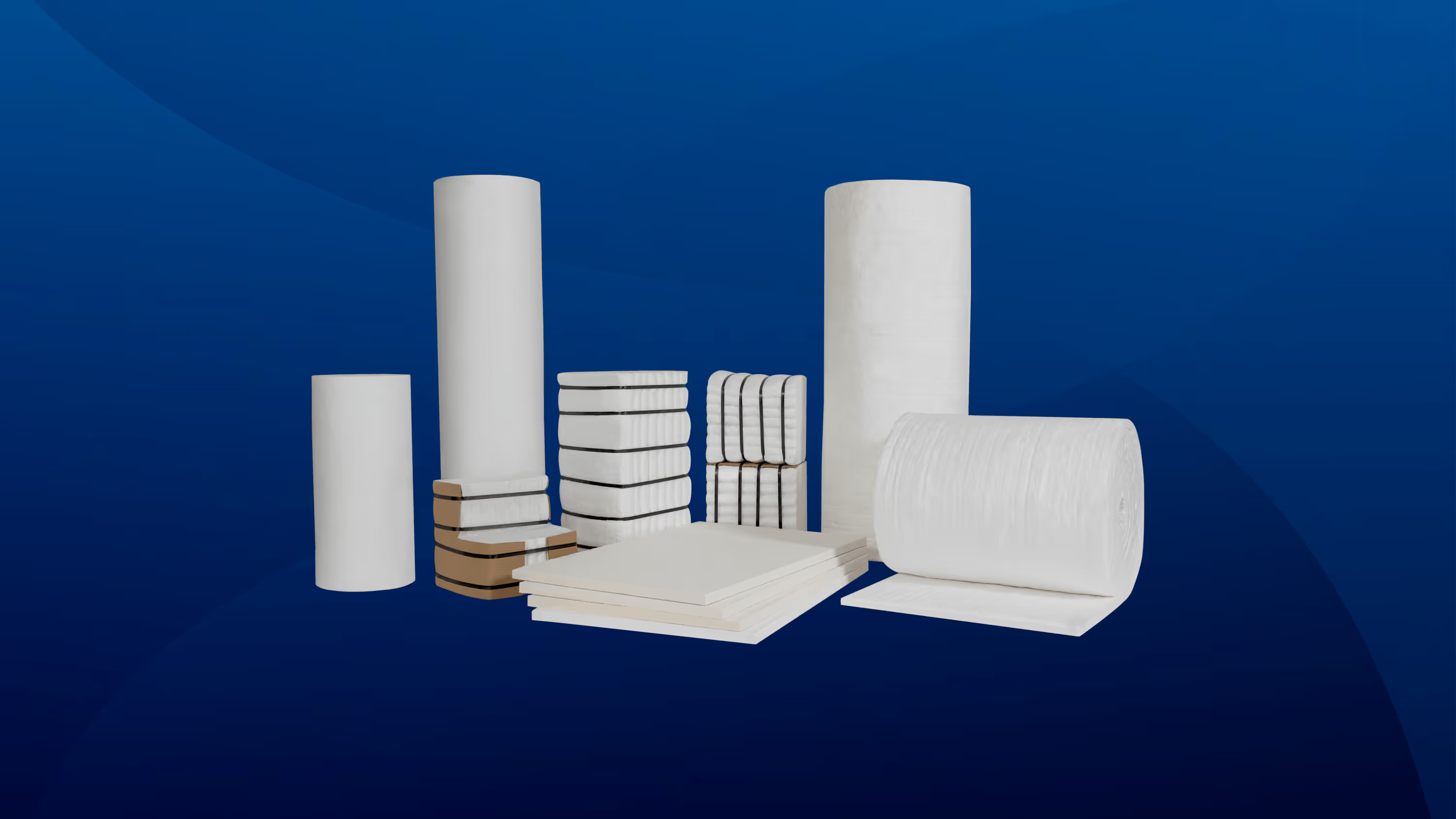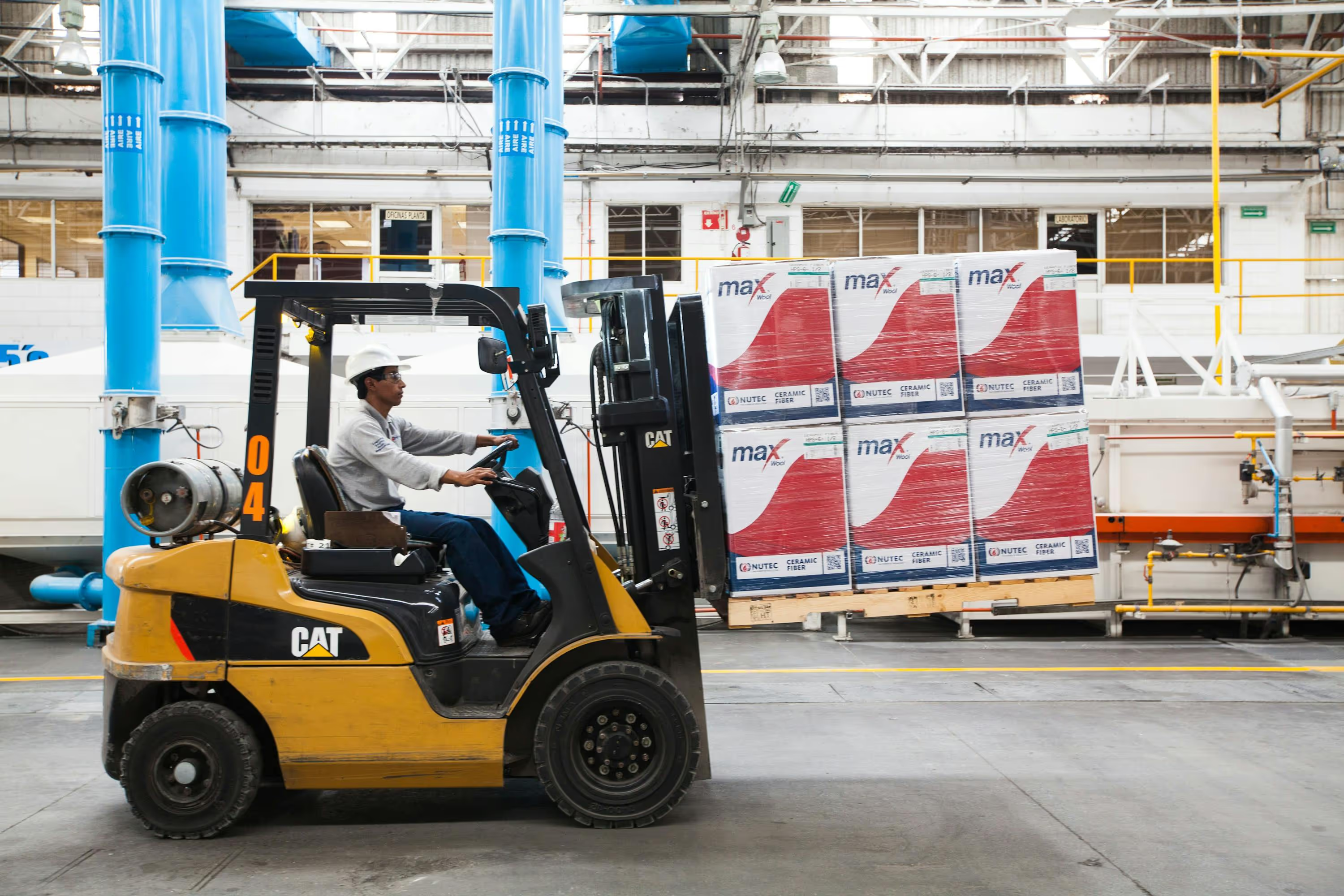
English (Global)
Article
How Much Do Thermal Insulation Materials Cost? 8 Factors That Determine Their Price
The cost of thermal insulation materials can vary significantly depending on various factors. Below are eight that have a role in determining price and that you should take into account for your business.
By Abel Ochoa
Sales Manager Mexico & Latin America
When purchasing thermal insulating materials, consumers frequently inquire about cost. With this in mind, it's worth noting that prices can vary significantly based on various factors, so it's helpful to know about these before making a purchase decision. As a starting point during the buyer's journey, being aware of price ranges can ensure that the investment delivers the best results.
In this article, we explain eight fundamental aspects determining the price of thermal insulation materials.
1. Type of Material
There is a wide variety of thermal insulation materials on the market, such as mineral wool, ceramic fiber, and polyurethane. All of these have different properties and characteristics, directly affecting their price.
Some materials may be more expensive due to their higher thermal efficiency or durability. Others become affordable due to their availability and ease of installation.
For example, polyurethane is one of the most efficient materials in thermal insulation, but it is also one of the most expensive.
On the other hand, fiberglass has a relatively lower price, but it is less efficient than other materials.

Learn more about the types of insulating materials in our article "Pros and Cons of Different Thermal Insulation Types"
2. Raw Material Availability
The availability of raw materials is essential in determining the product's cost. Hence, its cost will be higher if made from scarce or difficult-to-obtain raw materials.
For example, polyurethane is produced from petroleum, so its price is influenced by petroleum cost fluctuation. On the other hand, mineral wool is made from recycled materials such as glass and rock, which makes for a more steady price range.
3. Volume
The volume required for a specific thermal insulation material’s application and effectiveness is a third factor directly impacting price point. As the quantity increases, the unit cost decreases. This is because providers often offer special volume pricing.
However, note that the amount required will depend on the size and complexity of the work involved. It's advisable to calculate the material needed beforehand to avoid causing the total cost of your project to escalate.

4. Quality of Thermal Insulation Materials
Quality also influences costs. High-quality materials become more expensive but usually provide better thermal insulation and remarkable durability.
In addition, they provide excellent thermal efficiency and good heat insulation, which can translate into ideal protection for equipment and machinery, leading in turn to a longer lifespan.
5. Transportation Costs
In some cases, transportation can determine the material's price points, especially if shipping from a distant location is necessary. It's essential to consider this when evaluating the total cost of the material.
Similarly, thermal insulation materials are bulky and heavy, making them expensive to transport. Some suppliers include this transportation tariff, while others charge it separately.

6. Workforce Cost
Installation becomes a complex process that requires specialized skills and knowledge. However, labor costs may vary based on geographic location, contractor experience, and project complexity.
These are calculated based on the time and effort required to complete any project.
7. Delivery Times and Production Capacity
The material price may increase if demand is high and production capacity is limited. Also, if you’re specifying tight delivery schedules, you may have to pay a higher price to get the material on time.
If you plan and make a scheduled purchase, it's possible to obtain discounts for volume and delivery times.

8. Energy Savings
Thermal insulation systems make it possible to reduce heat losses in industrial processes, which can bring significant savings in energy consumption and, therefore, in the company's operating costs.
Therefore, industrial thermal insulation solutions with a greater ability to reduce heat losses may command a higher price than less efficient ones.
Some Considerations Before a Purchasing Decision
Here are four recommendations that you should consider before choosing the thermal insulating material best suited to your needs:
- Compare prices. Request quotes from various providers and compare their prices to find one that best serves your budget. Ensure these include all expenses, such as transportation and installation.
- Consult an expert. If you have doubts about which type of thermal insulation you need, the quality, or the volume required, you can consult with an expert in the field. At NUTEC, we can advise you on the best options according to your needs and budget.
- Plan ahead. Planning will allow you time to compare prices, efficiently manage financial resources, and avoid additional costs due to tight delivery times. This way, you will be able to avoid unnecessary expenses.
- Choose the thermal insulation that best suits your needs. Evaluate your requirements before buying any product.

It is worth mentioning that, in addition to price, there are other crucial factors that you should consider when choosing thermal insulation products.
Here’s our article, "High-Temperature Insulation Products - Key Factors Before Choosing", to learn more.
Choosing the Right Product
Considering any insulation product’s quality is recommended before starting the purchase process. This can provide longer-lasting benefits for your equipment or machinery.
Remember that your assets must be adequately protected to guarantee their safety, efficiency, and durability. By considering all these factors, you can select the proper high temperature insulation.
Would you like to know more about our high temperature thermal insulation products? Contact one of our advisors today
Want to know more?
At NUTEC, we are committed to providing you with valuable content that helps you make informed decisions for your business. Thank you for taking the time to read this entry and we hope it provided you with insights that you can apply to your operations.
If you have any questions or would like to learn more about our products, please don’t hesitate to contact us.
To get in touch, simply fill out the form, and one of our experts will get back to you as soon as possible.
© NUTEC Incorporated 2026



